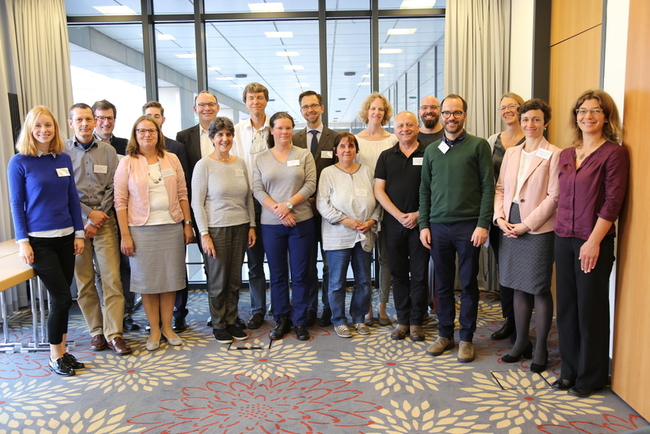09.10.17 | At the invitation of the Federal Ministry for Education and Research (BMBF), fourteen leading marine scientists recently came together for the kick-off meeting of the advisory committee for MARE:N agenda process ‘Blue Ocean’ in Hamburg. The Leibniz Centre for Tropical Marine Research (ZMT) was represented by Prof. Dr. Anna-Katharina Hornidge, head of the department “Social Sciences” at ZMT. By implementing the MARE:N agenda process ‘Blue Ocean’ the BMBF is adopting a new approach for the future of German marine research. Together with scientific, political and social experts, the Ministry is developing new research topics relevant for the future to drive future funding measures.
During the on-going dialogue process, the research programme ‘’MARE:N – Coastal, Marine and Polar Research for Sustainability’’, designed as an open evolving operational framework, will be expanded. Over the next decade, MARE:N will serve as framework for research funding in coastal, marine and polar regions. On the basis of evidence-based knowledge, new approaches for the future of the seas and oceans are to be established.
“I’m glad, we were able to engage scientists from many different disciplines of marine research in this advisory committee. During the continuous dialogue process the task at hand is now to identify future foci and requirements of marine research”, said Rudolf Leisen, Head of the Department “System Earth” of the BMBF.
The advisory circle’s chairman, Prof. Dr. Martin Visbeck from GEOMAR Helmholtz-Centre for Ocean Research Kiel, commented: “German marine research is going strong and being noticed at international level. As scientists we are happy to develop an innovative, integrative and solution-focused research programme for “Blue Ocean” within the context of MARE:N” and to be working together with the Federal Government as well as representatives from business and civil society.”
“We can only achieve a more sustainable use of the oceans and preserve their services in the long term through global solution-driven research. The agenda process will help us to further advance German marine research along these lines”, continued Visbeck, who is also a board member of the German Marine Research Consortium (KDM). The KDM and Project Managment Jülich have been commissioned by the BMBF with the implementation of the agenda process.
In addition to senior scientists, junior researchers are also involved in the dialogue process. At this year’s Youmares-Conference in Kiel in September, they focused on the central theme of the kick-off meeting “Future and Emerging Topics in Science”. They identified open access for research data, coherent data management and targeted scientific communication with politics and civil society as the most relevant future topics.
The MARE:N forum “Blue Ocean” during the United Nations Climate Change Conference COP23 in Bonn on November 7, 2017 will be another key element of the agenda process. The results of this workshop will be summarized in a draft paper, developed by the advisory circle, which would then serve as the basis for future funding announcements. For the time being the committee is scheduled for a period of 18months.





